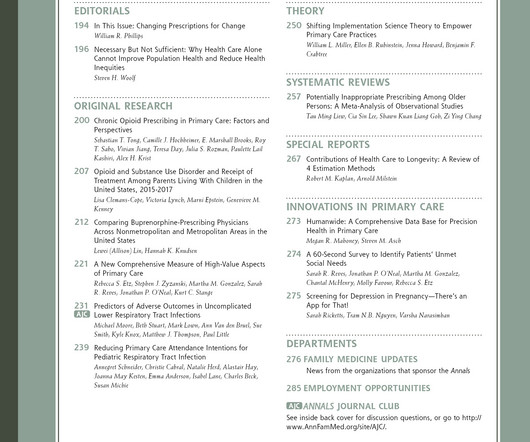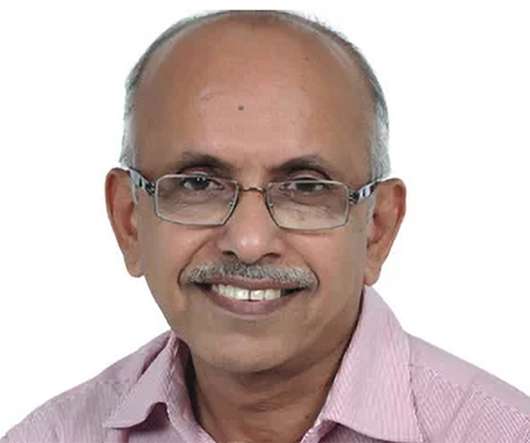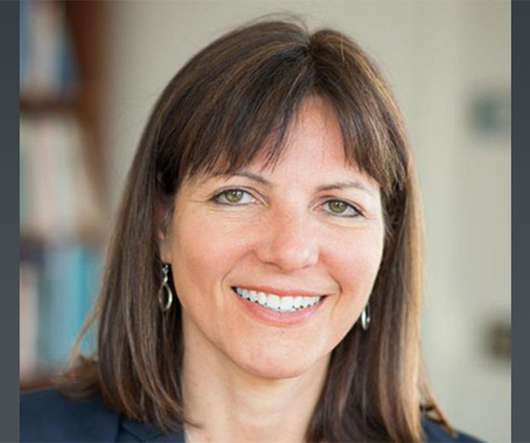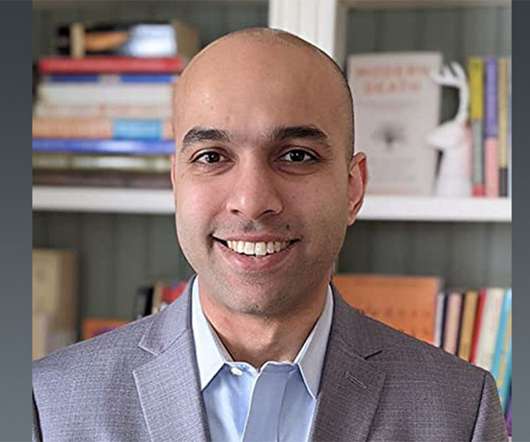The Impact of Integrated Care on Healthcare Utilization and Costs: Evidence from the Kansas Health Homes Medicaid Program [Behavioral, psychosocial, and mental illness]
Annals of Family Medicine
NOVEMBER 20, 2024
Context: Individuals with complex conditions—those with multiple physical, mental, or behavioral health conditions--require numerous health and social services that are not effectively co-delivered by the current healthcare system.




































Let's personalize your content